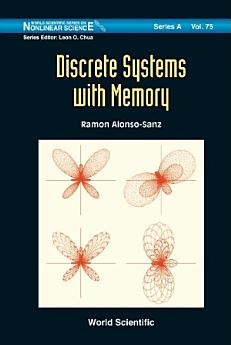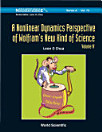Discrete Systems With Memory
Mar 2011 · World Scientific Series On Nonlinear Science Series A Book 75 · World Scientific
eBook
480
Pages
family_home
Eligible
info
reportRatings and reviews aren’t verified Learn more
About this eBook
Memory is a universal function of organized matter. What is the mathematics of memory? How does memory affect the space-time behaviour of spatially extended systems? Does memory increase complexity? This book provides answers to these questions.It focuses on the study of spatially extended systems, i.e., cellular automata and other related discrete complex systems. Thus, arrays of locally connected finite state machines, or cells, update their states simultaneously, in discrete time, by the same transition rule. The classical dynamics in these systems is Markovian: only the actual configuration is taken into account to generate the next one.Generalizing the conventional view on spatially extended discrete dynamical systems evolution by allowing cells (or nodes) to be featured by some trait state computed as a function of its own previous state-values, the transition maps of the classical systems are kept unaltered, so that the effect of memory can be easily traced.The book demonstrates that discrete dynamical systems with memory are not only priceless tools for modeling natural phenomena but unique mathematical and aesthetic objects.
Rate this eBook
Tell us what you think.
Reading information
Smartphones and tablets
Install the Google Play Books app for Android and iPad/iPhone. It syncs automatically with your account and allows you to read online or offline wherever you are.
Laptops and computers
You can listen to audiobooks purchased on Google Play using your computer's web browser.
eReaders and other devices
To read on e-ink devices like Kobo eReaders, you'll need to download a file and transfer it to your device. Follow the detailed Help Centre instructions to transfer the files to supported eReaders.








